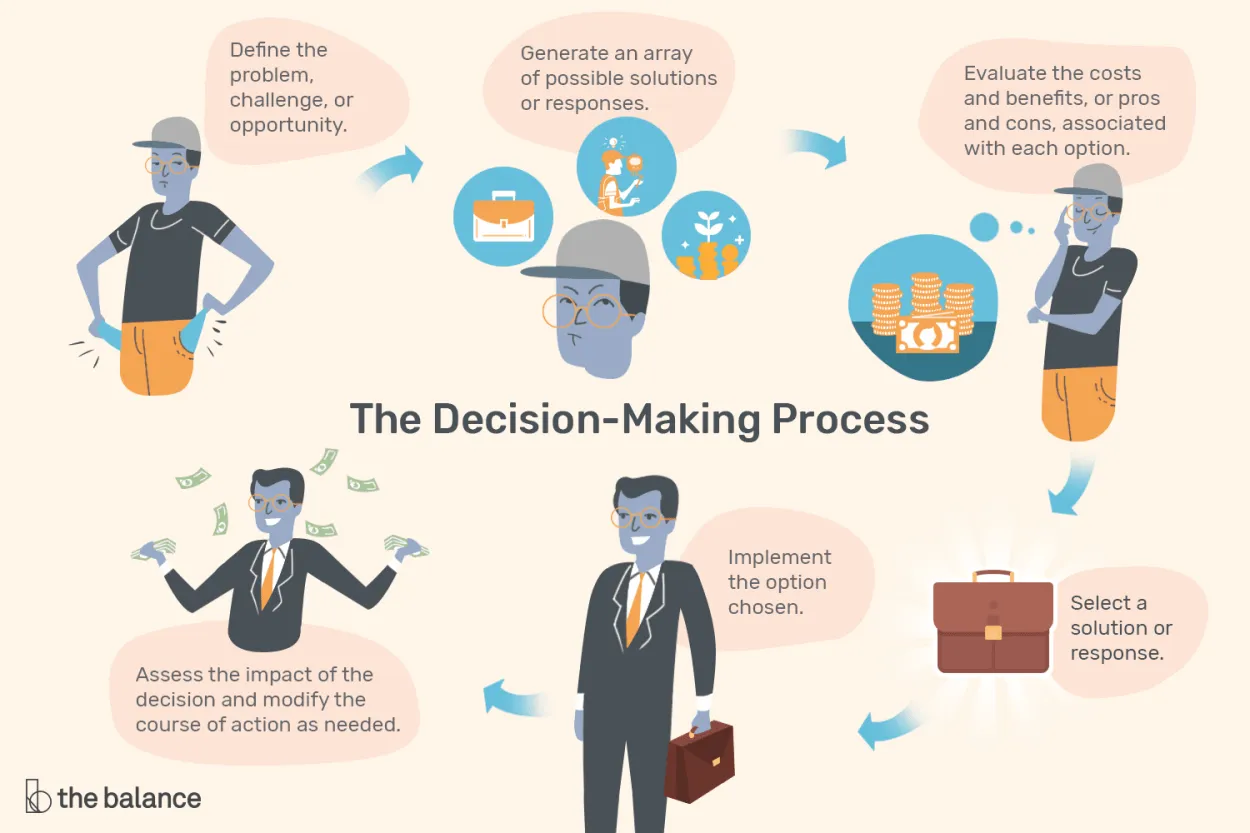In the dynamic professional landscape, effective decision-making plays a crucial role in shaping one’s career path and achieving success. From choosing the right opportunities to navigating critical crossroads, mastering the art of decision-making empowers individuals to make informed choices that align with their goals and visions. This article explores various strategies and insights to enhance decision-making skills for a fulfilling and rewarding career journey.
Understanding the Impact of Decisions on Your Professional Growth
When it comes to our careers, decision-making plays a crucial role in determining our professional growth. Every choice we make, whether big or small, has the potential to shape our career path and impact our long-term success. Understanding the consequences of our decisions can help us navigate our careers more effectively.
One aspect to consider is the importance of strategic decision-making. Making choices that align with our long-term goals and aspirations can significantly impact our professional growth. By evaluating the potential outcomes and weighing the risks, we can make informed decisions that further our careers.
Furthermore, decisions involving skill development and learning opportunities influence our professional growth. Choosing to invest time and effort into acquiring new skills, participating in training programs, or pursuing higher education can open doors to advancement and broaden our career prospects.
It is also essential to consider the impact of networking decisions on our professional growth. Building meaningful connections within our industry or profession can provide us with valuable resources, opportunities, and support. Choosing to engage in networking events, joining professional organizations, or seeking mentorship can greatly enhance our career development.
Lastly, decisions related to work-life balance play a crucial role in our overall professional growth. Striking a healthy balance between our personal and professional lives can contribute to job satisfaction, prevent burnout, and foster long-term career success. Making conscious choices to prioritize self-care and establish boundaries can positively impact our professional journeys.
In conclusion, understanding the impact of decisions on our professional growth is paramount. By recognizing the significance of strategic decision-making, skill development, networking choices, and work-life balance decisions, we can navigate our careers with purpose and maximize our potential for growth and success.
Utilizing Data and Intuition to Make Informed Career Choices
When it comes to making decisions about our careers, we often find ourselves at a crossroads between relying on data and listening to our intuition. Both have their merits and can play a significant role in helping us make informed choices.
Data can provide us with valuable insights and information about various industries, job markets, and specific roles. By analyzing relevant data, such as salary trends, job growth projections, and skill requirements, we can gain a better understanding of the potential opportunities and challenges that come with different career paths.
Furthermore, data can help us assess our own strengths and weaknesses. By objectively evaluating our skills, qualifications, and experience against industry benchmarks, we can identify areas for improvement and make targeted decisions for career development.
However, relying solely on data may not capture the full picture. Our intuition, gut feeling, and personal aspirations also play a crucial role in making career choices. Sometimes, we may feel drawn to a certain industry or profession, even if the data suggests otherwise. This intuitive sense can stem from our passions, values, or innate abilities that may not be quantifiable or reflected in the data.
Intuition allows us to consider factors beyond the numbers, such as our personal fulfillment, work-life balance, and alignment with our long-term goals. It helps us tap into our authentic selves and make choices that resonate with our deepest desires and aspirations.
In the end, the art of decision-making in our careers lies in finding the right balance between data and intuition. It involves carefully analyzing relevant information, exploring our options, and allowing ourselves to listen to our inner voice. By combining both data-driven insights and intuitive understanding, we can make informed career choices that align with our skills, passions, and aspirations.
Conclusion
Effective decision-making plays a crucial role in shaping one’s career. By considering various factors, analyzing options, and weighing the potential outcomes, individuals can make informed decisions that align with their goals and aspirations. It is important to prioritize personal values and long-term objectives when making career decisions, as this will lead to greater satisfaction and success in the long run.




